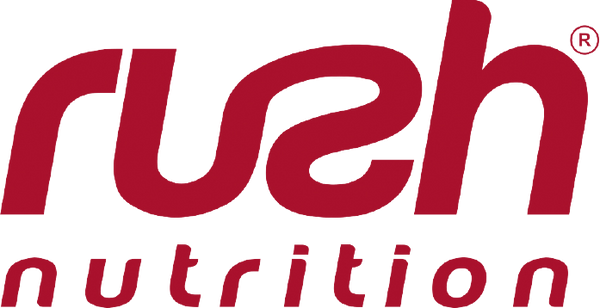
To the Parent Who’s Been Called “Negligent” for Choosing a Different Path—This Is for You
Info RushYou are not negligent | You are brave
In a world where quick fixes and pharmaceutical scripts often drown out quieter truths, you are choosing to pause. To listen—not just to the diagnosis, but to your child, your intuition, and a growing understanding that ADHD isn’t simply a “brain problem to be medicated,” but a whole-body, whole-system story to be honoured.
You’ve noticed patterns: how certain foods trigger symptoms… how sinus flares, recurring ear infections, skin reactivity (like dermatographia), sluggish digestion, dyslexia, and emotional dysregulation all seem interwoven. That’s not your imagination—it’s data. It’s the body speaking. And it points to hope.
A New Lens on ADHD: Whole-Body, Cellular Dysregulation
We’re beginning to understand that ADHD is often not just about the brain. Instead, it can reflect cellular dysregulation across systems—the gut, immune, detox pathways, and nervous system, all intertwined.
Dr. Nossel, one of the few practitioners who sees this connection clearly, refers to it as “genetic cellular weakness.” It’s the result of a delicate brain paired with a demanding gut, and sluggish enzyme systems that need support—not shame.
The good news? Cells can be helped.
Genes are not destiny.
With the right support, many children become calmer, clearer, and more resilient.
A Gentle, Evidence-Informed Path Forward
Dr. Nossel taught us to think in four simple movements:
1. Take Out the Trash (Eliminate Waste)
Our son’s body systems—the “kitchen appliances”—were in working order. But the “garbage” (waste and toxins) wasn’t being cleared out properly.
We began supporting:
- Regular bowel movements
- Hydration
- Fibre from real food (fruit and veg)
- Less ultra-processed food and unprotected sugar
- Trialing dairy- and gluten-free periods to calm inflammation
✨ Remember: go slowly, and build meals around real foods your child already loves. Pizza nights are still allowed—just not every night.
Suggested Supplements:
- Metagenics Advaclear
- Natroceutics Omega-3
- Magnesium Citrate
- Vitamin C
- IBS-8 Probiotic
Soothe the System (Calm Irritable Cells)
Our child’s challenging behaviour wasn’t “bad” behaviour—it was a reflection of overwhelmed, inflamed cells.
We made calming the system a priority through:
- Consistent sleep
- Morning sunlight
- Outdoor barefoot play
- Movement “snacks” throughout the day
- Breathwork and prayer rhythms
Calming Supplements to Support Focus & Nervous System:
- L-theanine
- Methyl Support
- GABA
3. Lighten the Load (Reduce Toxic Burden)
The detox pathways were blocked. Inflammation was high. And synthetic inputs (meds, mould exposure, heavy metals) were adding fuel to the fire.
We shifted to a lifestyle-first mindset:
- Sweat
- Hydration
- Movement
- Fibre
- Rest
✨ When using medication, we now treat it as short-term support—not a long-term solution. Work closely with your doctor to find the balance.
4. Refuel Wisely (Restore Nutrients)
All the appliances may work—but they need fuel and maintenance.
We focused on:
- Protein at every meal
- Rainbow-coloured plant foods
- Healthy fats (avocado, seeds, olive oil, oily fish)
- Doctor-guided supplementation
Nutrient-Gap Supplements:
- Magnesium
- Vitamin D3 (10,000 IU under medical supervision)
- B-Activ Complex
About Medication: Our Story
We went the Ritalin/Contramyl route in Grade 3 under school pressure. And yes, it improved focus—short-term.
But then came:
- Appetite suppression
- Weight stagnation
- Mood crashes
- Disrupted sleep
I began to realise: his body and brain were being deprived of the very tools they needed to thrive.
Medication isn’t inherently “bad,” and for some it’s necessary. But it should never be the only answer. And if you’re questioning it—you’re not failing. You’re showing up. With eyes open.
See the Child, Not Just the Diagnosis
Your child’s wiring is unique. There is beauty in their focus, creativity, passion, and energy. The goal isn’t to dull that—it’s to remove what inflames and restore what nourishes, so their God-given design can rise.
You have not “failed” because you’re pausing, questioning, or choosing a different road.
You are a faithful steward.
God saw your child before you did. He knit them together on purpose—with purpose. So pray for wisdom. Keep a log (sleep, stools, mood, focus, skin/sinus). Find a doctor who gets it. And walk this journey with others who understand.
A Simple Week to Start
- Breakfast: Protein + fruit/veg (eggs, nut butter, fish, meat)
- Snack swaps: Ditch sugary snacks for nuts, seeds, and real food
- Trial a dairy- and gluten-free week (oats, rice, sorghum, maize, plant milks)
- Prioritise: Sleep, morning sun, outdoor movement
- Track: 3–5 symptoms daily (mood, sleep, stools, focus, skin)
I even started Rush Nutrition because I believed—more than a decade ago—that functional, real food could be a powerful healing tool for my son.
You're Not Alone
You’re not going against the tide—you’re helping turn it. And with a whole-body plan that honours the gut–immune–brain connection, many kids begin to emerge as their true selves—steadier, happier, more whole.
Hold this close:
Your child is not broken.
Their body is speaking—and you are learning to listen.
That’s not neglect.
That is love. And it’s powerful.
Lara Mare’
Founder, Rush Nutrition
COO, Heartlines NPC
Fellow, Institute of Integrated Medicine
Disclaimer: This message is for encouragement, not medical advice. Please partner with your healthcare professional, especially around doses and medication decisions.
